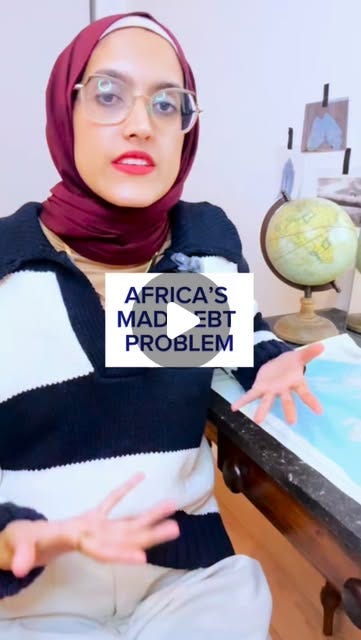Quick question: If most of your monthly salary went straight into loan payments, what would you cut first? Groceries? School fees? Medicine? That impossible choice, played out on a continental scale, is exactly what Africa’s debt crisis looks like today.
The core problem is simple: African countries are forced to dedicate huge parts of their national budgets just to repaying loans. I recently spoke to David McNair, the Executive Director of The ONE Campaign, a global policy expert who illustrated the massive scale of this burden.
“This year African companies will pay about $88 billion in servicing their debts and a lot of that is a very high rate.”
That massive figure means that many African countries simply cannot afford to pay for essential services like schools, hospitals, or even critical preparation for climate disasters.
I get it—debt sounds complicated and abstract. But here’s the part that actually affects everyday life, as seen recently in East Africa:
“What happened in Kenya was that the government couldn’t afford to do both and therefore they paused payments for civil servants, so what ended up happening was teachers were working for free, so that Wall Street bankers could get paid.”
The insanity of this situation is not that African countries necessarily have more debt than other countries; they don’t. The crazy part, as South Africa’s Minister of Finance, Enoch Godongwana, explained to us, is that African countries have to pay significantly higher interest rates than their Western counterparts.
“If they look at the African panel, which we have set up as part of our G20 presidency, when it rebuilds is precisely, but there’s always a risk attached to the African continent, sometimes an unjustifiable risk which imposes a higher cost of capital than is necessary.”
The solution, therefore, is not just more aid, but a systemic change to lower the cost of borrowing for the continent. This is exactly what South Africa pushed hard for during its G20 presidency this year, ensuring the issue moved from the periphery to the main agenda.
According to Minister Godongwana, these efforts resulted in concrete steps.
“We have declaration on debt, which means we’re going to have serious conversation, as the finance track and beyond,m with our presidents on the issue of debt on the African continent.”
The message is clear: if the G20 can successfully fix this broken system and make borrowing fair, African governments can finally start investing in people, in teachers, nurses, and climate resilience, instead of being forced to prioritize high-cost debt payments.
This systemic reform is the only way to truly give Africans a level playing field.





